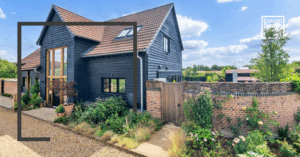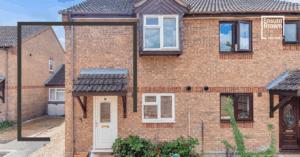There are certain milestones in life when you should consider making a will or updating your existing one—buying a home is one of them. Ensuring your estate planning is in order means that your property and other assets will be passed on to the right people after you die.
Why You Should Make a Will
Making a will is the most effective way to ensure your home and financial assets go to the people you intend. Without a valid will, your estate will be distributed according to intestacy laws, which may not reflect your wishes.
In legal terms, a will is known as a last will and testament, and your home and other assets form part of your estate.
Wills and Homeownership – Why It Matters
Your home is likely your most valuable asset. With property prices rising, its future worth may be even greater. Many homeowners assume their property will automatically go to their intended beneficiaries, but without making a will, this is not guaranteed.
Despite this, 53% of people have not communicated what should happen to their estate after they die (Source: The National Will Register).
Key Considerations When Making a Will
When writing or updating a will, consider the following:
- Who will inherit your estate? You can leave your property and assets to a spouse, partner, children, relatives, friends, or anyone of your choosing.
- Do you want to leave gifts to charities or organisations? Some people choose to donate part of their estate to charities.
- Guardianship of children under 18—Who will care for them, and what financial arrangements should be in place?
- Choosing an executor—Your executor is responsible for ensuring your wishes are carried out. This can be a family member, friend, solicitor, or accountant.
Joint Tenants and Tenants in Common – What You Need to Know
If you are buying a property with someone else, you must understand the legal differences between joint tenants and tenants in common, as this will determine how your property is passed on after you die.
What Are Joint Tenants?
Also known as beneficial joint tenants, this type of ownership means:
- You and the other owner(s) have equal rights to the entire property.
- If you die, your share automatically passes to the other owner(s).
- You cannot pass your share of the property on to someone else in your will.
What Are Tenants in Common?
With this ownership structure:
- You can own different shares of the property.
- Your share does not automatically pass to the other owners when you die.
- You can leave your share of the property to a beneficiary in your will.
When purchasing a home, discuss these options with your solicitor or conveyancer to ensure your property ownership aligns with your intentions. They will also register the property with the Land Registry.
(Note: There are legal differences when buying property in Scotland, so consult your solicitor for guidance.)
If you are the sole owner, this is not an issue, but it is still advisable to consider making a will or updating your existing one.
How to Make a Will
To ensure your will is legally valid and reflects your wishes, seek professional advice from a solicitor specialising in will writing services or a reputable estate planning provider. When doing so, you should:
- Outline your financial and personal circumstances.
- Specify who should inherit your property and other assets.
- Appoint an executor to administer your estate.
Some charities offer free will writing services, often in the hope that you will leave them a legacy in your will.
Do You Need to Make a Will When Buying a Home?
No, making a will is not a legal requirement when purchasing a property. However, it is a sensible step to take, ensuring that your home and assets are distributed according to your wishes.
Additionally, a well-structured will can sometimes help with Inheritance Tax planning, so it may be beneficial to consult a solicitor for expert guidance.
What Happens If You Do Not Make a Will?
If you die without a valid will, your estate will be distributed according to intestacy law, which could result in unintended outcomes:
- Your home and assets may not go to the people you want them to.
- Sorting out your estate may take years, delaying any inheritance for your beneficiaries.
- In some cases, your property and assets could end up with the Crown if no legal heirs are identified.
Currently, there are 5,883 estates listed as unclaimed on the official Unclaimed Estates List, meaning they could eventually go to the Crown (Source: Government Legal Department).
Final Thoughts
Writing a will is one of the most important steps you can take to protect your property and provide for your loved ones. If you are buying a home or already own one, now is the ideal time to consider making a will to ensure your assets are distributed according to your wishes.
If you found this guide helpful, please share it with others who may benefit from this information.
Important Links
Book a Valuation
Visit our Royston Facebook Page
Visit our Newmarket Facebook Page





